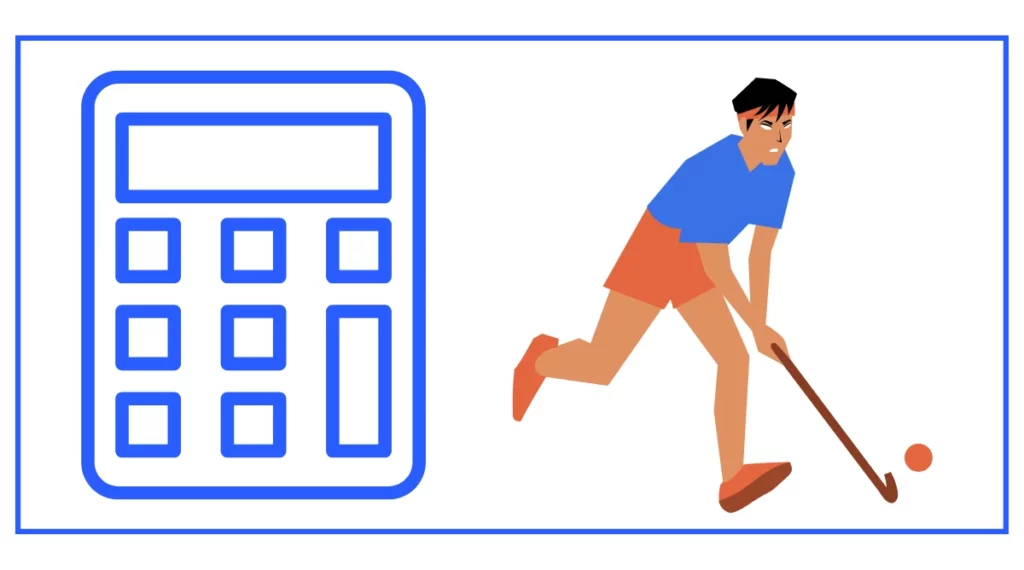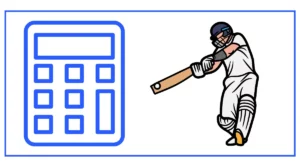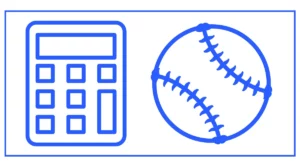Goals Against Average Calculator
GAA: 0
Are you a goalie?
Are you looking for an easy way to calculate the goals against the average?
This Goals against average calculator allows you to calculate whether you allowed a few goals or too many goals during the game as a goalie.
All you need to do is to enter the number of goals allowed per game, game duration, and total minutes played. You can also find your Strike Rate here.
This is especially useful for those who play field hockey, ice hockey, soccer, or similar games.

This statistic is equivalent to ERA in baseball.
You might be interested in calculating the slugging or on-base percentage.
What is Goals Against Average (GAA)?
Goals Against Average, commonly abbreviated as GAA, is a statistic that measures the average number of goals a goalkeeper concedes per game. It’s primarily used in hockey, but can also be applied to other sports like soccer and lacrosse. GAA is an essential metric for evaluating a goalie’s performance over a period of time.
How to Calculate GAA
The formula for calculating GAA is straightforward:
GAA = (Number of Goals Allowed × 60) ÷ Minutes Played
Here’s a breakdown of each component:
- Number of Goals Allowed: The total number of goals the goalie has conceded during the period being measured.
- 60: This represents the number of minutes in a standard hockey game.
- Minutes Played: The total number of minutes the goalie has been on the ice.
Using the GAA Calculator
Our GAA calculator simplifies the process of calculating a goalie’s GAA. Here’s how to use it:
- Enter the number of goals allowed per game.
- Input the game duration in minutes (typically 60 for hockey).
- Provide the total minutes played by the goalie.
- Click the “Calculate GAA” button.
The calculator will then display the calculated GAA, rounded to three decimal places.
Interpreting GAA Results
Generally, a lower GAA indicates better performance. In professional hockey, a GAA below 2.00 is considered excellent, while a GAA above 3.00 might be concerning. However, it’s important to remember that GAA is just one of many statistics used to evaluate a goalie’s performance.
Importance of GAA in Hockey
GAA is a valuable metric in hockey for several reasons:
- Performance Evaluation: It provides a standardized way to compare goalies across different teams and leagues.
- Team Strategy: Coaches use GAA to make decisions about which goalie to start in important games.
- Player Development: Young goalies can track their GAA to measure improvement over time.
- Contract Negotiations: Professional players and their agents often use GAA as a negotiating point for contracts.
Limitations of GAA
While GAA is useful, it’s important to understand its limitations:
- It doesn’t account for the quality of shots faced.
- It doesn’t reflect the strength of the team’s defense.
- It can be skewed by games with unusual scores or durations.
For a more comprehensive evaluation, GAA should be considered alongside other statistics like save percentage and shots faced.
GAA in Other Sports
While our calculator is primarily designed for hockey, GAA can be applied to other sports with some modifications:
Soccer GAA
In soccer, games typically last 90 minutes, so the formula would be adjusted to:
GAA = (Number of Goals Allowed × 90) ÷ Minutes Played
Lacrosse GAA
Lacrosse games usually last 60 minutes, similar to hockey, so the same formula can be used.
Tips for Improving GAA
For goalies looking to improve their GAA:
- Focus on positioning and anticipation.
- Work on rebound control to prevent second-chance goals.
- Improve communication with defensemen.
- Study opponent tendencies and shooting patterns.
- Maintain physical fitness and flexibility.
Conclusion
The Goals Against Average calculator is a valuable tool for players, coaches, and fans to quickly assess a goalie’s performance. While it’s an important statistic, it should be used in conjunction with other metrics for a comprehensive evaluation of a goalie’s abilities. Whether you’re a professional analyst or a passionate fan, understanding GAA can enhance your appreciation of the game and the crucial role goalies play.
Sources





